Today, ahead of this week’s high-level meeting on antimicrobial resistance (AMR) during the UN General Assembly’s 79th session in New York, Malaria No More co-hosted an event entitled, “Racing Against Antimalarial Resistance: Driving Global Action to Support National Response Efforts” alongside Medicines for Malaria Venture and RBM Partnership to End Malaria, and in partnership with the U.S President’s Malaria Initiative (PMI), the U.N Foundation (UNF), and Impact Santé Afrique.
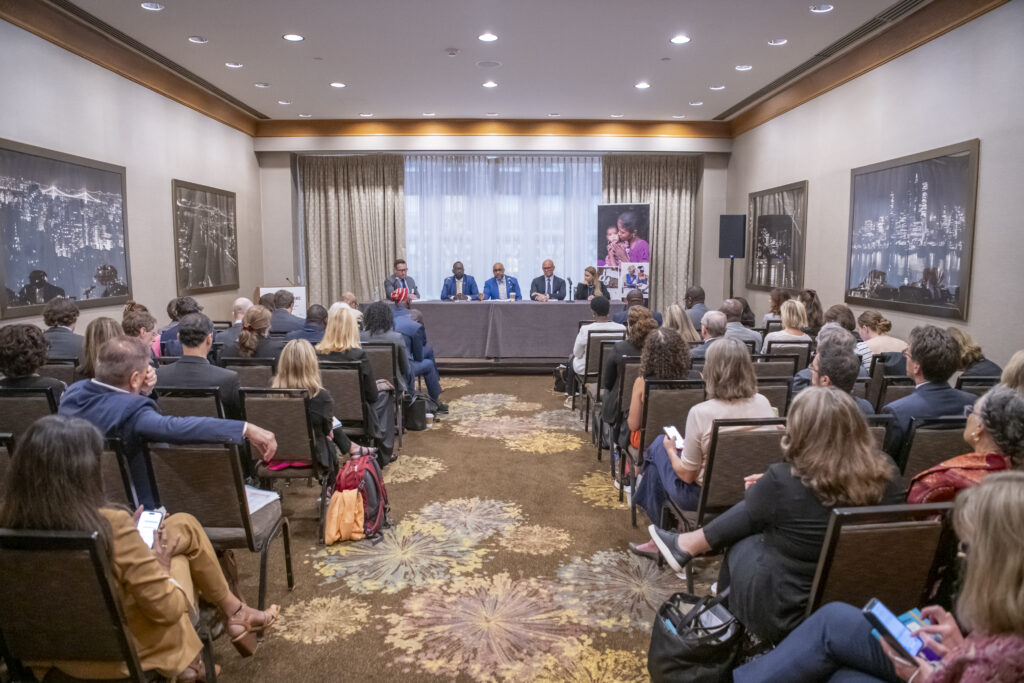
Widespread use of artemisinin-based combination therapies (ACTs) has contributed to tremendous reductions in malaria cases and deaths over the past two decades. However, the recent emergence and spread of ACT drug resistance in Africa is now threatening progress and putting millions of lives at risk, forcing malaria endemic countries to stop or scale back other lifesaving malaria interventions to buy the more costly ACTs.
As emcee for the event, Olivia Ngou, Executive Director of Impact Santé Afrique, welcomed attendees, reminding them that as partners, leaders, and changemakers, they are united by a single mission: to confront one of the most pressing threats in the global fight against malaria — drug resistance.
“Anti-malarial resistance is rising, unfortunately, and we have at stake millions of lives, especially children in Africa,” said Olivia Ngou, Impact Santé Afrique, Executive Director. “This fight, we cannot afford to lose it, and that’s why we have gathered here an incredible group of leaders and experts around the world who are at the forefront of this battle.”
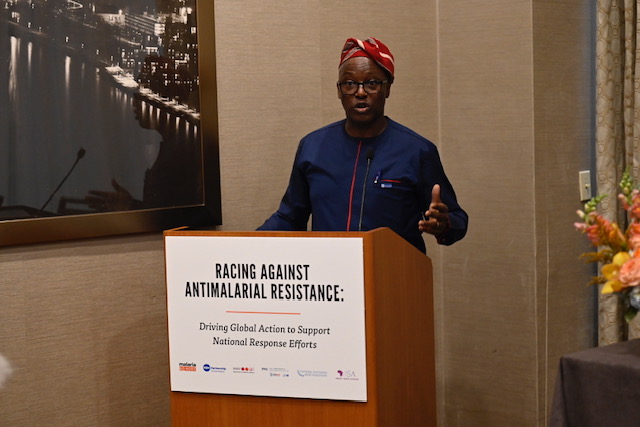
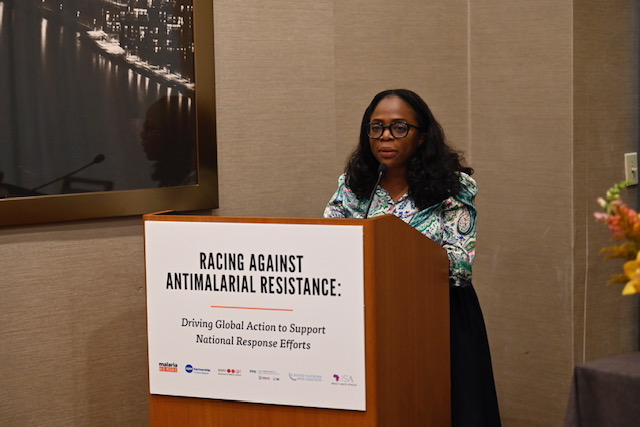
Keynote speaker, Dr. Michael Adekunle Charles, CEO, RBM Partnership to End Malaria, called for urgent action to respond to and mitigate the evolving resistance in Africa.
“If we look at the challenges ahead, we see that the perfect storm is facing many countries. We talk about conflict, funding challenges, the effect of climate change, but also resistance,” said Dr. Michael Adekunle Charles, CEO, RBM Partnership to End Malaria. “Drug resistance is something that continues to grapple many parts of the continent, and we’re seeing that wave coming slowly into Africa and many parts. So, we need to gather together to think about what we can do differently and how can we race against this parasite, this mosquito, that is continuing to outsmart us.”
Hon. Nassor Ahmed Mazrui, Minister of Health of Zanzibar, Tanzania, in his keynote address, stressed the need to act now to continue to innovate the pipeline of antimalarials and diversify the ACTs being used and protect the longevity of drugs in the antimalarial arsenal. Mazrui also warned that a failure to act will result in unthinkable outcomes, with devastating impacts for millions of people, with the highest toll on children and pregnant women across Africa.
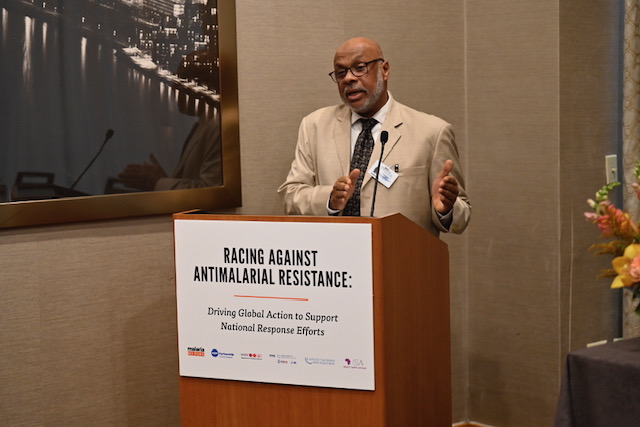
“If the global community does not act now, antimalarial resistance will grow into a far greater problem that will require even more resources to address in the future, not only in Tanzania, but across East Africa, where several countries are facing antimalarial resistance,” said Hon. Nassor Ahmed Mazrui, Minister of Health of Zanzibar, Tanzania.
During the program, the U.S. President’s Malaria Initiative, the Bill and Melinda Gates Foundation, the Global Fund to Fight AIDS, Tuberculosis, and Malaria, and UNITAID signed a statement affirming their collective commitment to working with partner countries to urgently address the threat of antimalaria drug resistance. The four donors and champions of malaria control and elimination efforts globally also called on bilateral and multilateral donors, philanthropic foundations, and the private sector to join in heeding the call from malaria endemic countries to make existing alternative ACTs available and affordable.
“The global malaria community cannot afford to repeat the deadly delays that previously occurred to address antimalarial resistance. The time to act is now and we are committed to doing so,” the statement said.
“As we have seen before in global health and other pathologies, new therapeutics are available. They’re more costly because the market needs to do what the market does – but we don’t act with enough time, and then we see the consequences of our lack of action, which is measured in lives,” said Dr. David Walton, U.S. Global Malaria Coordinator, President’s Malaria Initiative.
“We need to better understand the feedback and the discussion with people in the communities,” said Philippe Duneton, UNITAID, Executive Director. “Yes, we need to decrease the price [of medicines], but we also need to create the demand. We need to help the country to get it right. So, this is really the aim of what we do, and we do it not alone.”
“This is a real time for urgent action. When we think about the costs required to address [antimalarial resistance] and address this quickly, and the compare that to the cost of losing the ability to say that every case of malaria is treatable, curable, it’s completely disproportionate,” said Philip Welkhoff, Gates Foundation Malaria Director.
“The reality is we have not been collectively, as a malaria community, responding as fast as I think we need to to this threat,” said Peter Sands, Executive Director, The Global Fund to Fight AIDS, Tuberculosis and Malaria. “And I hope we take this moment and this statement as a kind of challenge, that we’re back here this time next year and we can actually look at how many countries have made progress… Because if we don’t move at a great pace, there will be children’s lives that will be the price of our slowness.”
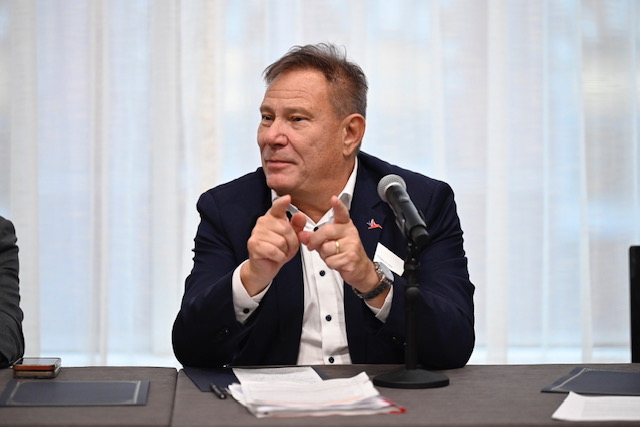
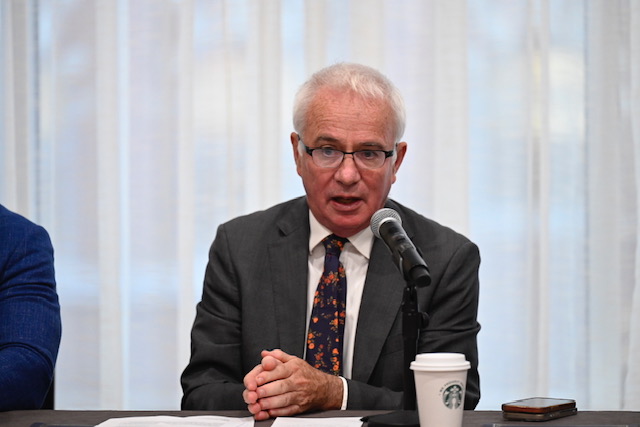
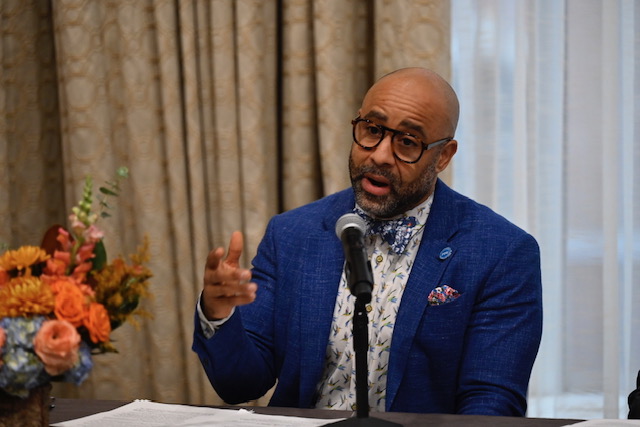
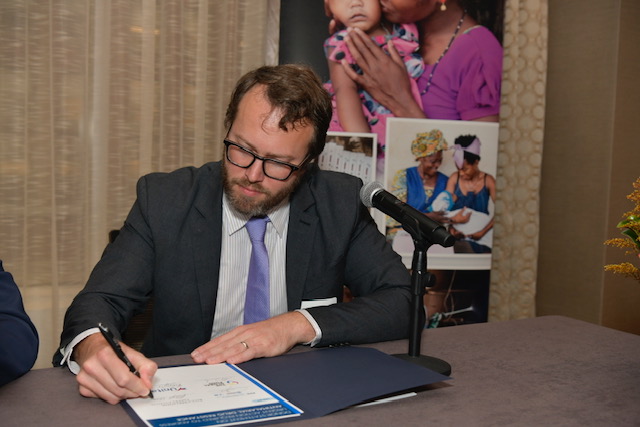
Malaria No More CEO, Martin Edlund, also moderated a panel discussion on current strategies, emerging innovations, and visions for the future for combatting resistance.
Here is what we heard:
“Malaria in Brazil: 99% of the cases are in the Amazon regions. Brazil has more than 5,000 municipalities but malaria is concentrated in 30 municipalities. So, we can end malaria,” said Dr. Ethel Maciel, Secretary of Health and Environmental Surveillance, Ministry of Health of Brazil. “We are very committed to shared knowledge and experience, and whatever we can do to end malaria in the region in the world.”
“Science can and will get ahead of this issue. I have no doubt about that, that science will win this battle,” said Martin Fitchet, Medicines for Malaria Venture CEO. “What could get in the way, however, are the typical issues of political will, momentum, urgency, and funding, which is why I’m delighted to be part of this meeting, part of that momentum, part of that commitment.”
“As we talk about antimalarial resistance, let’s not forget that it is not just the molecules we are talking about. There is resistance in the communities as well. There is resistance among our policymakers. There is resistance in the budgeting process,” said Dr Ahmed Ogwell, UN Foundation, Vice President, Global Health Strategy in his closing remarks. “So, let’s handle all the different resistances within the context of this discussion that we are having, not just on ACTs.”
"We’re at a critical juncture. By committing fairly modest resources, we can act now and stave off the looming threat of antimalarial drug resistance," said Dr. David Walton, U.S. Global Malaria Coordinator, President’s Malaria Initiative. "We can avoid the tragic consequences of the past, we can save lives, and we can protect the gains we’ve made in the fight against malaria."
Explore more photos here.
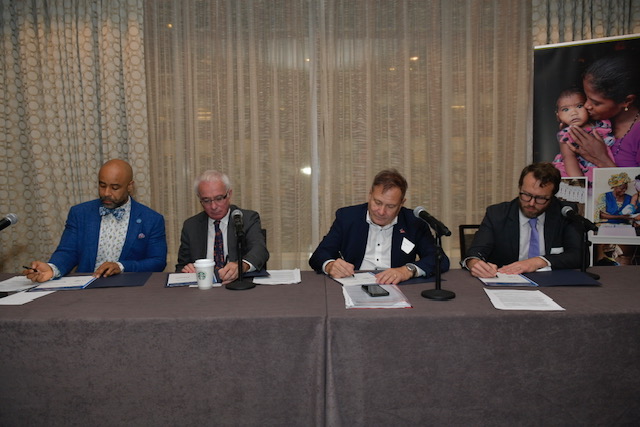
###



